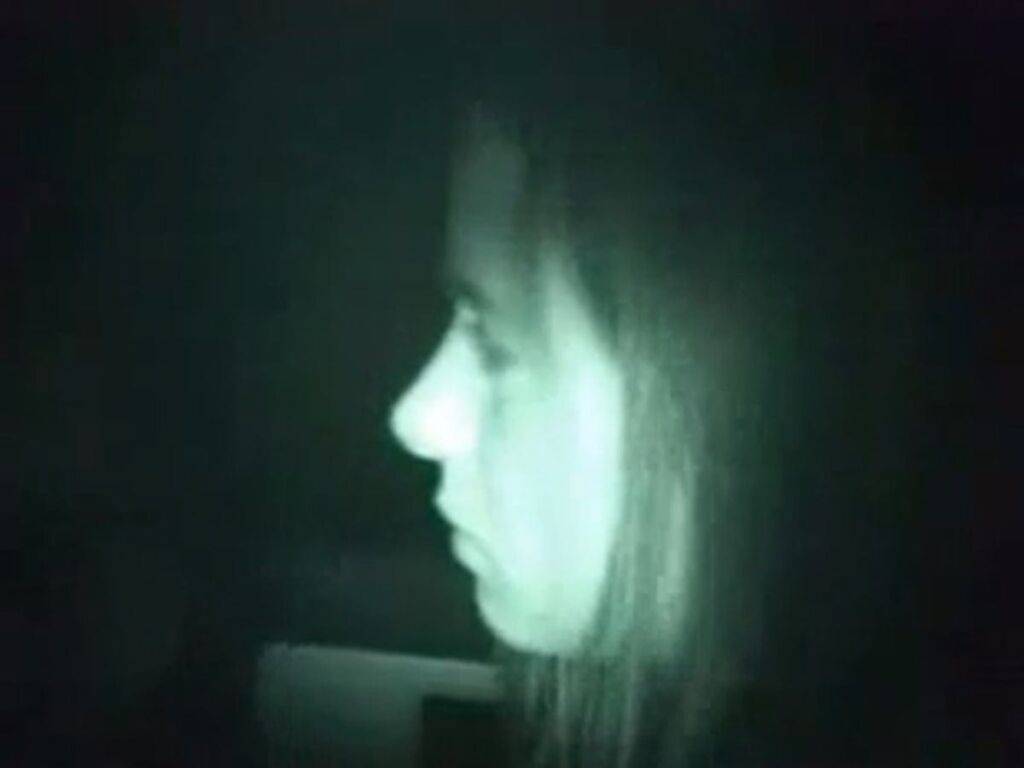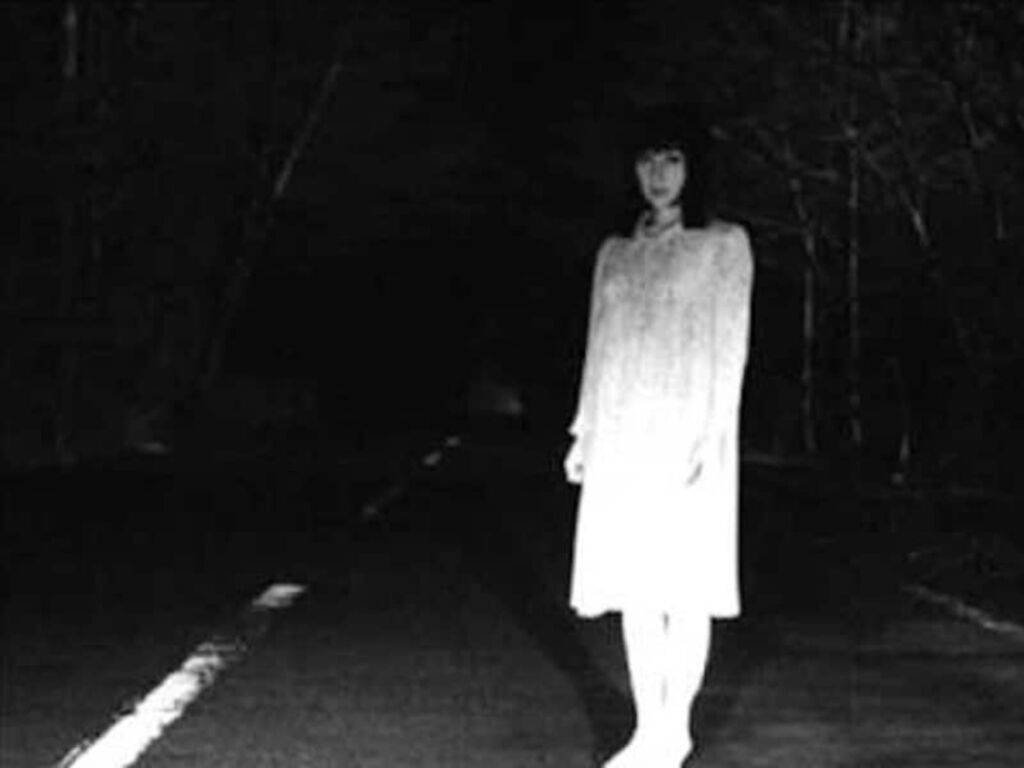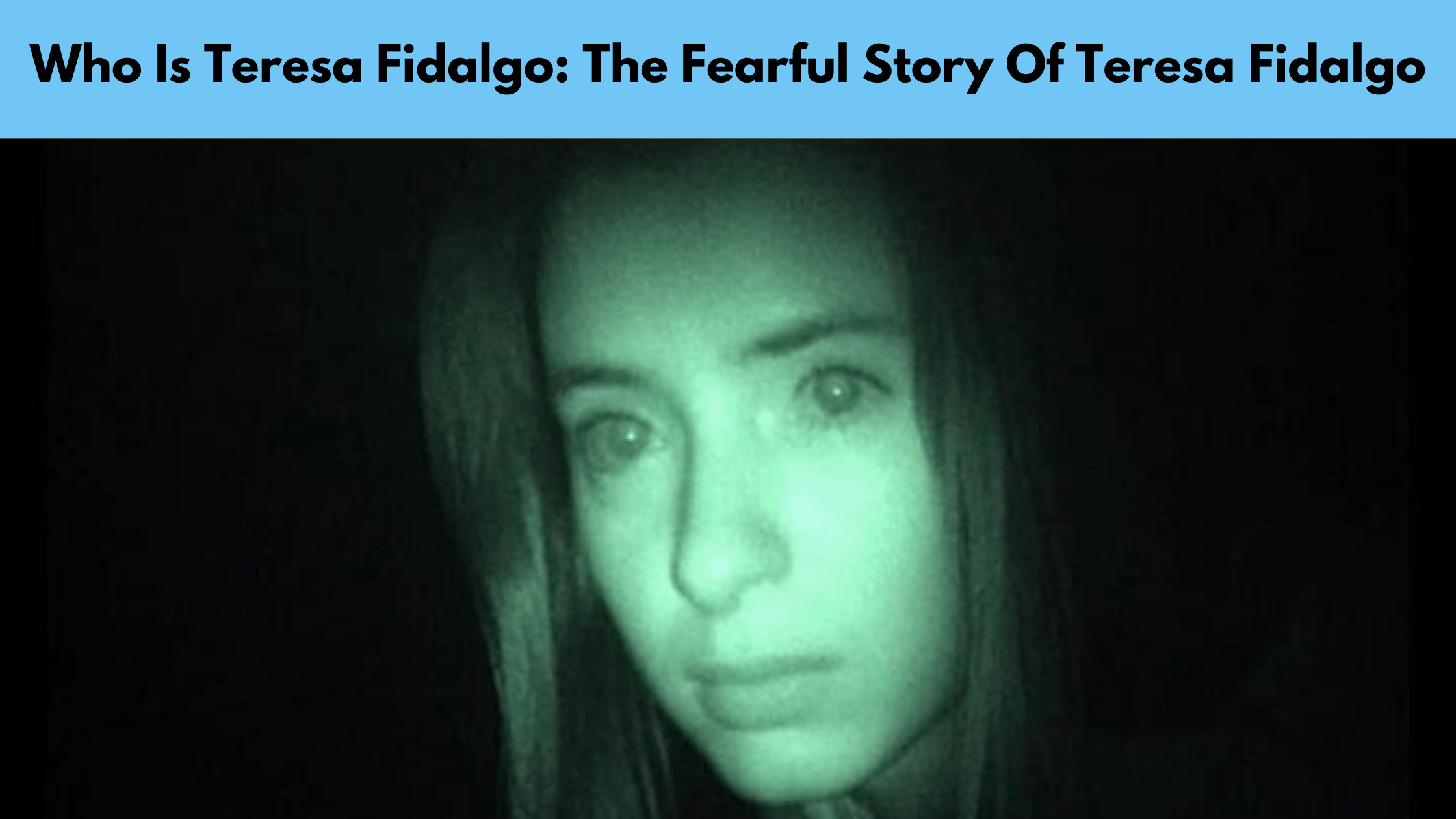With search engines at our fingertips to dispel false narratives, separating reality from fiction has grown easier in today’s digital era. However, in the early days of the internet, there were several viral hoaxes and false stories that spread uncontrollably. Teresa Fidalgo‘s mysterious narrative stands out among these. This social media-fueled Portuguese urban legend captured spectators with its unsettling charm. Is there truth to Teresa Fidalgo’s story? Explore this online phenomena that has lasted despite its fictitious roots.
Teresa Fidalgo: The Story Of Teresa Fidalgo
Teresa Fidalgo, who rose to notoriety in 2014 thanks to a viral video, has made recurring appearances with new twists throughout the years. It’s critical to remember that Teresa Fidalgo’s story is not the first nor the last of its kind. The question is, “Who is Teresa Fidalgo?” According to the story, she was a Portuguese woman who died tragically in Sentra, Portugal, and whose soul is said to torment all who come into contact with her.
A group of pals embarks on a trek along a lonesome road in the video that inspired her narrative. Their encounter with a mystery woman claiming to be Teresa Fidalgo sets in motion a bizarre chain of events. As the plot progresses, a vehicle accident kills everyone except one of the passengers, leaving a trail of unsolved questions. This movie was frequently accompanied by a terrifying message warning listeners of severe repercussions if they did not share it—a practise that aided in its global spread.
A CURVA aka Teresa Fidalgo Ghost (Original)
Original Video of the legend of Teresa Fidalgo.www.facebook.com/davidrebordaorealizador
Teresa Fidalgo’s Reality: Is Teresa Fidalgo Real
Uncovering the truth about Teresa Fidalgo shows a web of fabrication expertly woven by David Rebordo. During the making of Rebordo’s film “Virus” in February 2003, the plot and accompanying footage were created. While the footage is authentic, the narrative is a well crafted piece of storytelling. Despite the director’s admission that the story has no basis in fact, it continues to circulate on sites such as WhatsApp and Instagram, deceiving those who seek mystery.
The Survival of Urban Legends in the Digital Age
In the world of social media, viral hoaxes and false narratives frequently find a willing audience. Teresa Fidalgo’s story is a perfect illustration of how a chain message coerces people into spreading or face dire consequences. Individuals spread such myths because they are afraid of the unknown, blurring the borders between reality and fantasy. A simple web search yields a wealth of search results that provide a vivid picture of Teresa Fidalgo’s story.
Unravelling the Teresa Fidalgo Story: Who is Teresa Fidalgo
The iconic chain message evoking Teresa Fidalgo’s name has spread widely on social media sites such as Facebook, WhatsApp, Instagram, and email. This letter issues a terrifying ultimatum to recipients: distribute the message or suffer grave repercussions. The message’s emotional weight and vivid images frequently elicit acquiescence, furthering the narrative’s global propagation.
Teresa Fidalgo: A Tragic Story or a Work of Fiction

Teresa Fidalgo’s narrative taps into humanity’s obsession with the supernatural, repeating a larger pattern of urban legends that have captivated the imagination for generations. Teresa Fidalgo is portrayed in the story as a ghost who died in a 1983 accident in Sentra, Portugal. The central plot of the narrative is a group of friends seeing her ethereal presence, which leads to a fatal vehicle accident.
Teresa Fidalgo Video Deconstruction: Reality vs. Fiction
The Teresa Fidalgo film depicts a frightening meeting on a lonesome road between three companions and a woman in white. This lady, pretending to be Teresa Fidalgo, leads them to the location of her tragic accident, a revelation that results in a bloodbath. Only one passenger is said to have survived, a guy named David, who is unable to recall what happened that night.
Teresa Fidalgo’s True Origins Have Been Revealed
While the Teresa Fidalgo film appears to be genuine, it is critical to recognise its fabricated character. The author, David Rebordo, confessed that the story is totally fictitious. The video, a result of Rebordo’s short film “A Curva,” shows a superbly produced tale that, despite its obvious cinematic antecedents, continues to perplex viewers.
A Rational Approach to Understanding Teresa Fidalgo’s Message

When confronted with the Teresa Fidalgo message, critical thinking is essential. Closer examination reveals the narrative’s implausibility and emotional manipulation. The director’s admission that it is a work of fiction emphasises the need of approaching such stories with caution and refusing to prey to irrational anxieties.
How did Teresa Fidalgo Die?
According to the fictional narrative surrounding Teresa Fidalgo, she is said to have died in a tragic accident. The story claims that Teresa Fidalgo met her demise in a car accident that occurred in Sentra, Portugal, in the year 1983. This fabricated account is an integral part of the urban legend, which has garnered attention through a viral video and accompanying messages shared on social media platforms. However, it’s important to note that Teresa Fidalgo’s story is entirely fictional and lacks any basis in reality.
Conclusion: Lifting the Mysterious Veil
The Teresa Fidalgo story is a testament to the ongoing attractiveness of urban legends in a digital age filled with sensationalism. While the story’s viral nature may have contributed to its mystique, a simple inquiry reveals that it was invented. By adopting logic and challenging the veracity of such stories, we may traverse the internet world with better clarity and judgement.
FAQ’s
Who is Teresa Fidalgo and why is her story famous?
Teresa Fidalgo is the central character in a viral urban legend that originated on the internet. According to the story, she was a Portuguese woman who died tragically in an accident in 1983. Her story gained fame through a video that depicts a chilling encounter between a group of friends and a woman claiming to be Teresa Fidalgo.
Is the Teresa Fidalgo story based on real events?
No, the Teresa Fidalgo story is entirely fictional. The narrative, including the video and associated messages, was crafted by David Rebordão during the production of his film “Virus” in 2003. Despite its fictional origins, the story continues to circulate on social media platforms.
What is the message associated with the Teresa Fidalgo story?
The message that often accompanies the Teresa Fidalgo video warns recipients of dire consequences if they do not share the video. This emotional manipulation tactic aims to coerce people into sharing the message, leading to its rapid dissemination across social media platforms.
Is there any truth to the claim that ignoring the message will lead to harm?
No, there is no truth to this claim. The message’s intent is to generate fear and compel individuals to share it. There is no evidence or basis to support the notion that ignoring the message will result in any negative outcomes
Why do people still believe in the Teresa Fidalgo story despite its debunking?
The persistence of belief in the Teresa Fidalgo story can be attributed to the emotional impact of the narrative, coupled with the mysterious and supernatural elements it presents. Additionally, some individuals may not be aware of the story’s fictional origins, contributing to its continued circulation.
Did Teresa Fidalgo’s story have any impact beyond the internet?
While the Teresa Fidalgo story gained significant traction on the internet, it primarily remains a digital urban legend. It has not had any verifiable impact beyond online discussions and shares.
Are there similar urban legends like Teresa Fidalgo’s story?
Yes, urban legends involving supernatural entities and ominous consequences for not sharing messages are common across cultures and eras. These stories often exploit people’s fear of the unknown to garner attention and circulation.
How can I differentiate between real stories and urban legends on social media?
Critical thinking and fact-checking are essential when encountering stories on social media. Look for credible sources, cross-reference information, and be wary of sensationalistic or emotionally manipulative content. If a story sounds too sensational to be true, it’s worth investigating further before sharing.
Can the Teresa Fidalgo story teach us anything about online information sharing?
Absolutely. The Teresa Fidalgo story serves as a cautionary tale about the importance of verifying information before sharing it online. It highlights the power of emotional manipulation and the need for critical thinking in the digital age.
What’s the takeaway from the Teresa Fidalgo phenomenon?
The Teresa Fidalgo story reminds us of the allure of mystery and the enduring nature of urban legends in the digital era. By exercising skepticism, seeking credible sources, and promoting online literacy, we can navigate the online landscape more responsibly and avoid perpetuating false narratives.
